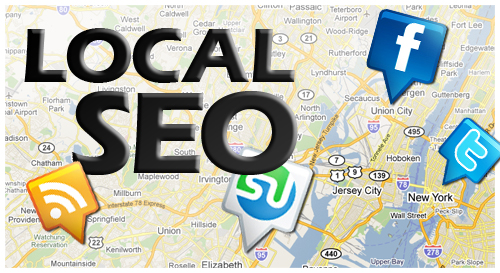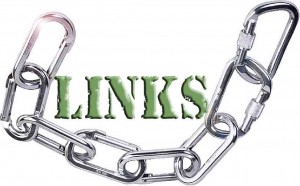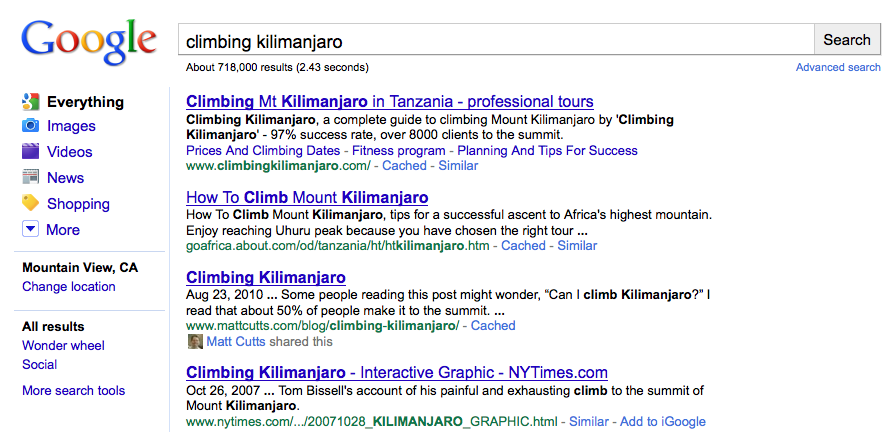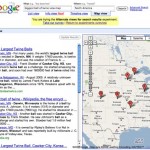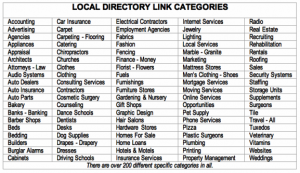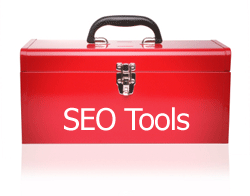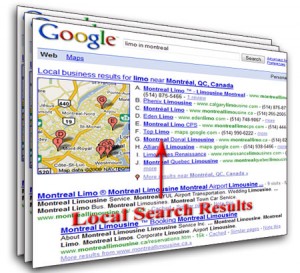What exactly is local SEO?
Local SEO is search engine optimization aimed at getting clients to get out of the house and get down to your place of business!
Awhile back, before Google map search results changed the way we looked at search, a local doctor was effectually locked out of Google as a technique to bag new clients. Old school SEO was just too costly and formidable to do when the only results that counted were customers that live within 5 mile distance of the doctor’s office. Doing classical search engine optimization for a local enterprise would have been like of buying an ad in the Wall Street Journal, simply not effective for a local company looking for local clients.
Google identified the problem and modernized. Come forward to a year ago. Google reported that thirty-five percent of all searches had included city, state, or zip-code. Google reacted by originating Google Places, which made around 50,000,000 novel world wide web pages for US companies. The information on these pages was gathered from open sources such as online yellow pages. The other search engines, not to be left out, jumped onboard. That’s right, Google, Yahoo and Bing have each made your company a web page. Now all you need to do is claim the page and fill it out, correct?
Well, almost correct. Claiming your pages is the start. These Place Pages have changed SEO, and made a new business for it Local SEO pros like me.
Go to Google, and search the term “dentist”. The first thing you will notice is that Google knows where you are located. If they have it right, the search results will show you a map, with your location in the middle, and burgundy dots and pins all around you representing local dentists. Several of these pins will be large, and marked with the first 7 letters of the alphabet. Now on the left side of the page, under the paid placements, but ahead of results you will find 7 enriched organic search results, with letters, matching to the pins on the map. These results are at times “7-Pack”.
How do you get your organization included on the first page of search results?
Searches function by algorithm, which is another way of saying that Google will assign a numeric value to one’s web page. That value when correlated and compared with the scores of other businesses in your sphere of influence. It is this juxtaposition that translates into the rank that companies will be displayed in return for search results. This is the art of local search engine optimization; accepting the evolving ways that search formulas classify and order establishments, and optimizing the things that Google and the other search engines evaluate, in order to get the best possible rank.
But beware! If Google believes that they are being gamed, that you are doing bogus things to modify the organic results, you could be the unfortunate receiver of the heinous “Google Slap”. No one needs to get slapped.
Who needs organic Local SEO? Everyone that is looking to grow their local business!


